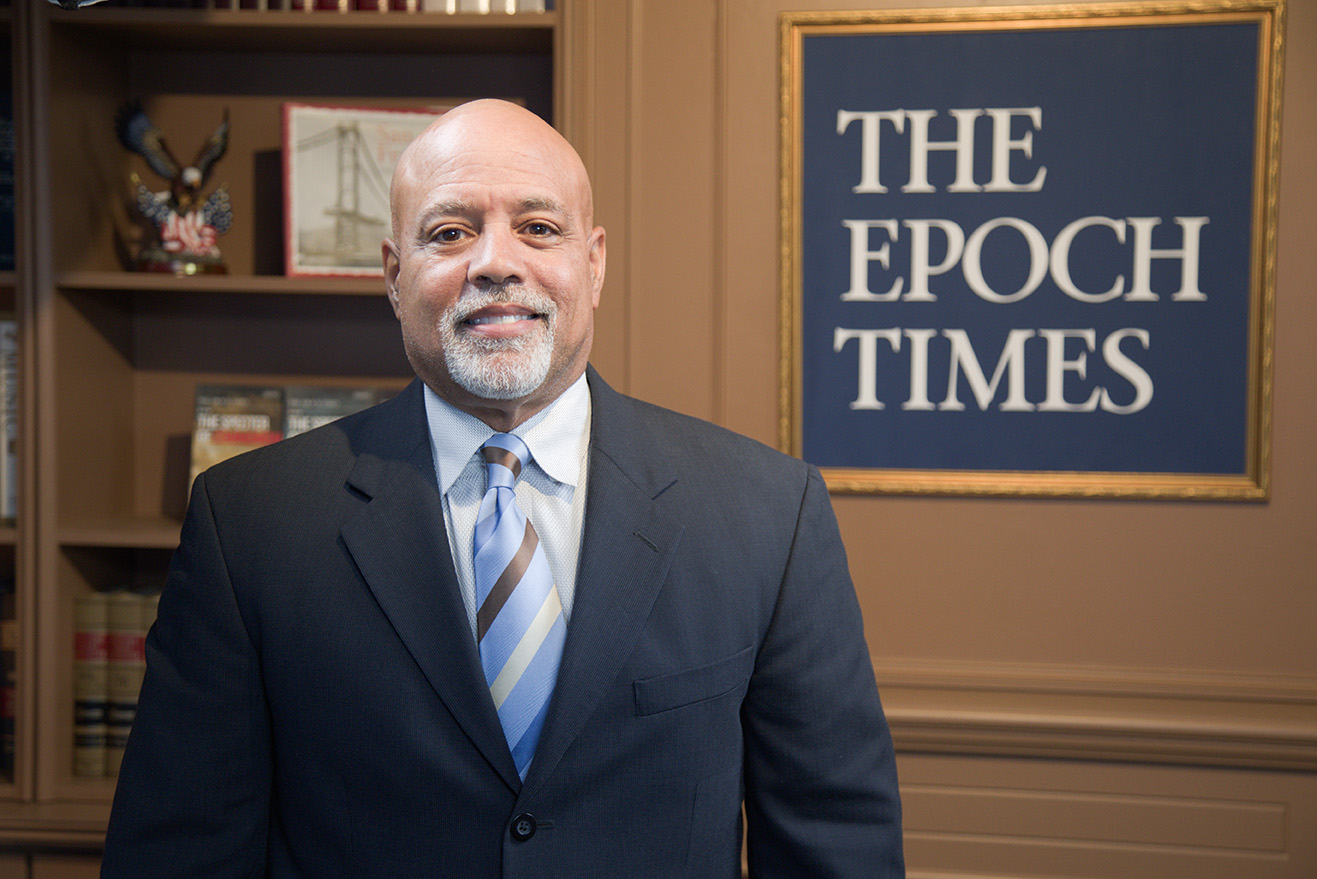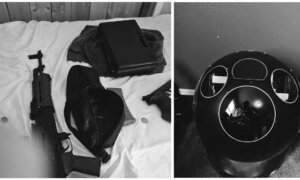A veteran is committed to helping other veterans in Silicon Valley after serving in the U.S. Army for nearly 40 years. Retired Col. Ray Watts spoke on EpochTV’s “Bay Area Innovators” program about the time he let a homeless veteran stay in his home for seven years until he found permanent housing.
“I was one of the first to help a veteran who was sleeping in his car,” Watts said, reflecting on how he began his journey of assisting homeless veterans. “And mind you ... I had three kids, two teenage daughters, and my wife said, ‘Are you nuts? You’re going to let a stranger live in our home?’ [I said,] ‘No, he’s a soldier. ... It’s the right thing to do.’”
The veteran had been living in his car for seven years before moving to a transitional housing facility. Watts interviewed the soldier and determined he was a nice guy, so he let him into their home. Last year, the veteran moved out and got his own apartment with his wife.
Watts is from a military family in Indiana. He joined the military in his teenage years after finishing high school and was required to enlist for six years.
He first went to Fort Knox, Kentucky, for basic training and realized he liked the camaraderie and being part of a team. After he finished the training, he proceeded to more advanced training in San Francisco’s Presidio.
“Stayed with the Sixth Army at Presidio. Loved sleeping essentially under the Golden Gate Bridge. But I was in barracks, hearing the ships come in at night, and I go, ‘I could learn to really like this.’ So I began to have an appreciation for the Bay Area,” he recalled.
After he completed his six years, his commanding officer recommended he join the California Military Academy, a state program for those with the potential to be commission officers. Watts attended the academy for another two years, decided to go into aviation, and became a pilot who flew Chinook B models. He was an airfield commander at Los Alamitos Army Airfield and later served as the State Aviation Office branch chief for California.
“When I came back home, I started progressing through my military career as a first lieutenant, as a captain, and assuming more responsibilities as platoon sergeant, platoon leader, and then, of course, as a ... company commander, then a battalion commander,” he said. “And then throughout the various stages of my aviation flying career, I assumed more responsibilities. And as you know, eventually I deployed to Iraq with the 40th Combat Aviation Brigade.”
In 2010, he was deployed to Baghdad, Iraq. There, he was part of the last rotary wing aviation unit to support the U.S. transition to leaving Iraq. He was stationed at the Al-Faw Palace, a home base for Saddam Hussein, as a liaison officer for the 18th Airborne Division.
“I coordinated all the rotary wing assets lifts for Congressional leaders when they came to visit Iraq, two Secretary of Defense, both Bob Gates and Leon Panetta,” he said. “So that was my job, and I did work in his palace.”
He described the experience there as surreal because the palace compound housed Hussein’s two sons and other family members. One of the homes was converted into a holding area that was a jail with fake ceilings and walls, located about 15 minutes away from the main compound.
“But the one thing I would probably say I remember the most is I was with a historian, and he said, well, Saddam loved Ranch Dorito chips. And I go, ‘Are you kidding?’ He says, ‘No.’ And I go, ‘Saddam.’ He goes, ‘Yeah, that guy.’ ... He would take the ranch chip, Dorito chip, and dip it in water because he didn’t like the powder on his fingers,” Watts said. “That’s one of many things that he had, but it was a lot of opulence, whether in the latrines or the restrooms or the stairway, the staircases and the pillars.”
After retiring from the military, he continued to serve by finding innovative ways to improve the lives of veterans, particularly during the often difficult transition from military to civilian life.
“When you transition, they make it mandatory that you go through the mental awareness and understand, okay, how vulnerable are you and what’s going to trigger you?” Watts said. “Fourth of July ... imagine a veteran who’s been in that environment starting hearing this day. It’s like, oh, I’m going back to it.”

(Courtesy of Ray Watts)
Now, Watts is president of the Silicon Valley chapter of the Military Officers Association of America and a dedicated advocate for veterans.
“They’ve sacrificed limb and everything else and endured mental anguish, yet they’re not getting the benefits they deserve, because they haven’t been introduced to someone who can help them,” Watts said.
He noticed a lot of veterans are struggling with housing, food insecurity, suicidal thoughts, addiction, mental health issues, and job insecurity. So he helps connect them to the right resources that will fit their needs and experiences, such as tailoring their conversations to the hiring manager when they apply for a civilian job, going to the Veteran Service Office for disability assistance, obtaining benefits for their children, and so on.
One of his proudest accomplishments was working with Santa Clara County Supervisor Otto Lee to turn a military transitional facility into permanent housing in November 2023.
“He put some skin in the game, and they purchased that property for about $14 million. I was very much involved in getting that done through the county,” he recalled.
Through a program called All the Way Home that he and his church partnered with, they were able to take 1,600 veterans off the street and find them housing.
“There are patriots out there and people who care about the veterans,” he said. “And they’re passionate about it, and they deserve a thank you. I’m grateful.”














